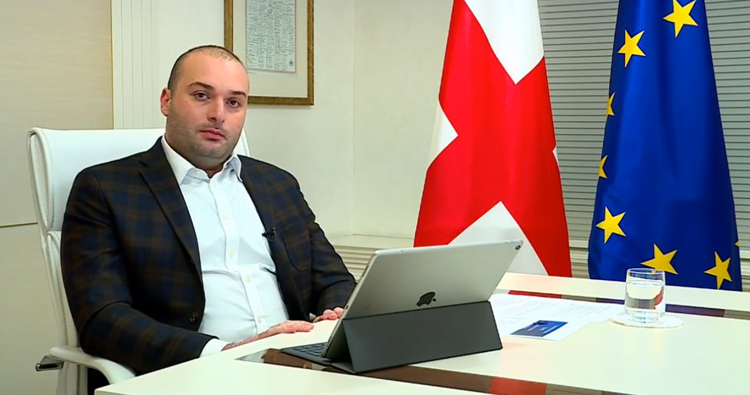Georgian PM: VAT return reform to bring 520 mln GEL to Georgia’s private sector

Georgian PM Mamuka Bakhtadze answered the question of the citizens on a Facebook live address. Screenshot from live video.
As a result of the implementation of VAT return reform launched in 2018, about 520 million GEL will be returned to Georgia’s private sector, said Georgian Prime Minister Mamuka Bakhtadze while answering the question of a citizen last night on a Facebook live address.
This means more investment resources for our companies. They will become able to create more job places, to more actively replace import, export [more products] and become more competitive among the global competition. This is a very successful reform and I suppose those digital decisions that will be introduced in Georgia’s Ministry of Finance and the Revenue Service will make this process more active”, Bakhtadze said.
While talking about taxes Bakhtadze said that the government has the desire to further reduce tax rates in Georgia.
Otherwise we would not be able to overcome poverty. Reducing tax rates is a mechanism for us to encourage business activities in Georgia. If we compare our rating to other countries ratings we will see that we are one of the leading countries in terms of liberal tax regime… but we also need to lift other barriers that hamper business development in Georgia and inclusive growth of economy”, said Bakhtadze.
He named lack of access to finances as one of the barriers for businesses in Georgia.
Therefore, one of our initiatives is a start-up capital reform that will increase access to starting capital and enable businesses to realise all viable projects”, said Bakhtadze.
Bakhtadze also talked about a new, European style, customs code that will come into force in Georgia in 2019. He said that currently the Parliament of Georgia is discussing the customs code.
Following the question from the Facebook user Bakhtadze raised the issue of new regulations on responsible lending practices that will also come into force in 2019 and said that these regulations will help to avoid overdue loans and blacklisted debtors in the future.
Bakhtadze said that citizens of Georgia faced the problem of overdue loans in 2007 when the then-president made the decision to remove the upper-level interest rate and this resulted to overdue loans.
Those rules that were in force in Georgia were unfair and in most cases fraudulent. Exactly this is the reason that about 600,000 citizens of Georgia were included on the so-called blacklist. All this started in 2007, when the then-president of the country made the irresponsible decision and removed the so-called upper-levels of interest rates and we got loans issued in 500-600-700 and 1000% interest rates”, said Bakhtadze.
Bakhtadze said that by annulling the loans of those 600,000 citizens and introducing regulations on responsible lending practice the government is trying to solve the problem of overdue loans.
 Tweet
Tweet  Share
Share